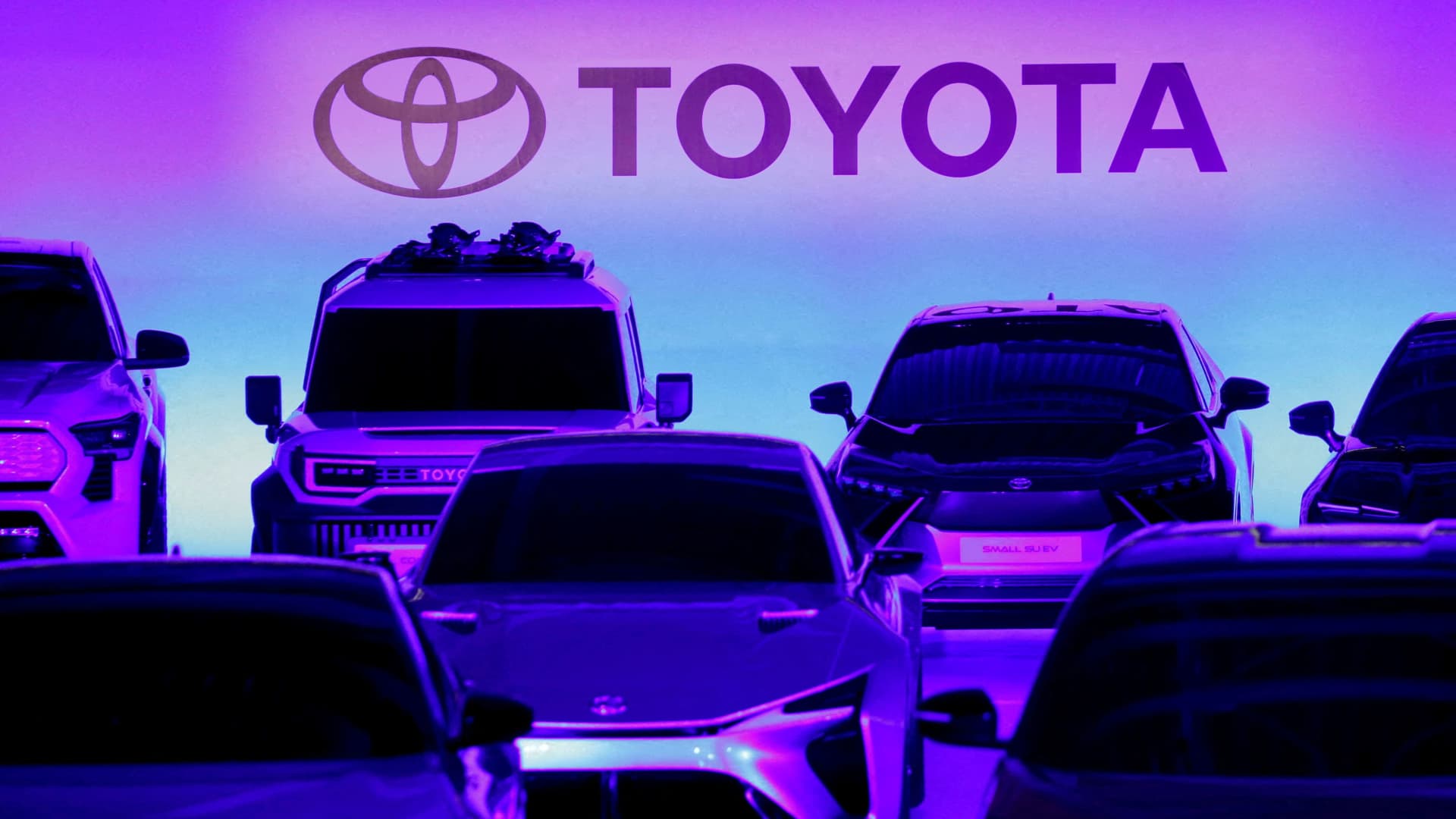

Hedging bets
In December, Toyota announced plans to invest 4 trillion yen, or now about $28 billion, in a lineup of 30 battery-powered electric vehicles by 2030. At the same time, it's continuing to invest in hybrids like the Prius and other potential alternatives to battery-electric vehicles. "We want to provide each person with a way that they can contribute the most to solving climate change. And we know that that answer is not to treat everybody the same way," said Gill Pratt, Toyota chief scientist and CEO of the Toyota Research Institute, during a media event last month in Michigan. Weeks ago, the company announced it would devote up to $5.6 billion for hybrid and all-electric battery production in Japan and the U.S. to assist its previously announced plans. That may sound like a lot, but it's dwarfed by others like GM and VW. GM, for example, has set a goal to exclusively offer zero-emissions, electric vehicles by 2035, including its Cadillac and Buick brands by 2030. Several other automakers have made similar vows or set targets for 50% or more of their vehicles sold in North America to be all electric. Toyota has a goal to sell 3.5 million electric vehicles per year by 2030, which would be more than a third of its current sales. Those sales include about 1 million units from its luxury Lexus brand, which plans to exclusively offer EVs in Europe, North America and China by then.
Toyota Motor Corporation cars are seen at a briefing on the company's strategies on battery EVs in Tokyo, Japan December 14, 2021. Kim Kyung-hoon | Reuters
Paul Waatti, manager of industry analysis at AutoPacific, believes Toyota is "definitely on the conservative" side when it comes to electric vehicles, but that isn't necessarily a bad thing for such a large automaker. "I think they're hedging their bets," he said. "From a global perspective, a lot of markets are moving at different paces. U.S. is slower than Europe and China in EV adoption but there are other markets where there's no infrastructure at all. To take a varied approach in powertrains makes sense for a global automaker." In 2021, Toyota sold 10.5 million vehicles in approximately 200 countries and regions, more than any other global automaker, including those by affiliates Daihatsu Motors and Hino Motors. Volkswagen – the world's second-largest automaker – sold 8.9 million vehicles in 153 countries, and GM and its joint ventures sold 6.3 million vehicles, primarily in North America and Asia.
Just one solution
Toyota believes all-electric vehicles are one solution, not the solution, for the company's goal to become carbon neutral. "In the distant future, I'm not investing assuming that battery electrics are 100% of the market. I just don't see it," said Jim Adler, founding managing director Toyota Ventures, the automaker's venture capital unit. "It really will be a mixed market." Toyota executives expect different areas of the world to adopt electric vehicles at varying rates, largely based on available energy, infrastructure and raw materials needed for the batteries to power the vehicles.
2022 Toyota Mirai hydrogen-powered fuel cell electric vehicle Toyota
Beyond hybrid and plug-in electric vehicles, Toyota has invested heavily in hydrogen fuel cell electric vehicles, including a second generation of its Mirai. Hydrogen fuel cell-powered vehicles operate much like battery-electric ones but are powered by electricity generated from hydrogen and oxygen, with water vapor as the only byproduct. They're filled up with a nozzle almost as quickly as traditional gas and diesel vehicles. "BEV, fuel cell, plug-in hybrids, all those reduction tools are going to happen, and they're all important," Hollis said. Still, fuel cell vehicles face the same challenges as all-electric vehicles: costs, lack of infrastructure and consumer understanding. Toyota said it is also looking into e-fuels, which officials say is a climate neutral fuel to replace gasoline in nonelectric vehicles.
Costs and materials
And middle-ground options tend to come with lower price tags. For example, a 2022 Toyota Prius hybrid with an EPA rating of up to 56 mpg combined starts at about $25,000. That's about $17,000 less than the carmaker's all-electric bZ4X crossover.
A 2023 Toyota bZ4X electric vehicle (EV) during the Washington Auto Show in Washington, D.C., on Friday, Jan. 21, 2022. Al Drago | Bloomberg | Getty Images
The batteries in electric vehicles are extremely costly, and the prices continue to increase due to inflation and demand for materials such as lithium, cobalt and nickel that are needed to produce the battery cells. Raw material costs for electric vehicles more than doubled during the coronavirus pandemic, according to consulting firm AlixPartners. That makes Toyota's hybrid strategy somewhat economical — relatively speaking. Toyota also contends that there just aren't enough of such minerals to go around. "Over the next 10 years or so, there's going to be tremendous bottlenecks in lithium supply around the world," Pratt said. "Just look at the number of mines that need to be made. There's also going to be a bottleneck in battery-grade nickel because the number of refineries that need to be paid when the demand is going up so fast." The Metals Co., a Canadian-based start-up, estimates there is significantly insufficient production of battery-grade nickel, cobalt and manganese sulfate to reach U.S. EV targets by 2030.
The publicly traded mining company forecasts that even if all forecast nickel sulfate production through 2030 from U.S. and free trade agreement countries went into producing electric vehicles, it would supply less than 60% of EV targets set by automakers during that timeframe.
. by [author_name]
https://www.globalcourant.com/why-toyota-the-worlds-largest-automaker-isnt-all-in-on-evs/?feed_id=22544&_unique_id=6320aa7049c70